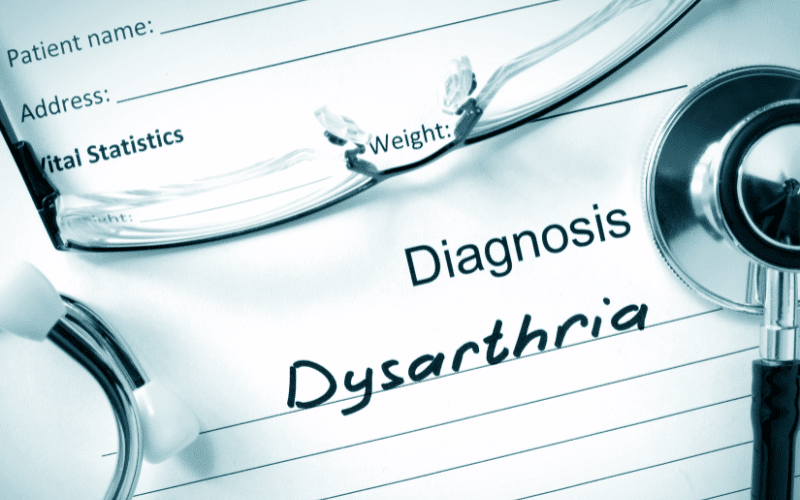Symptom 8. Dysarthria: Speech Difficulties

Communication is a cornerstone of human existence, and verbal communication plays a vital role in our social interactions. Dysarthria, a speech disorder resulting from muscle weakness, can make this fundamental task daunting for those with Parkinson’s disease.
Dysarthria in Parkinson’s typically presents as soft, monotonous speech. The patient’s voice might lack the usual inflections, becoming more monotone. This makes their speech sound dull and lifeless, a stark contrast to the lively conversation they might have previously enjoyed.
As the disease progresses, speech might become increasingly slurred or mumbled, making it hard for others to comprehend. Even the pace of speech can be affected. Some people might start speaking rapidly, with the words running into each other, while others might speak unusually slow.
The struggle doesn’t end here. Dysarthria also affects the volume of speech. Speaking softly, almost in a whisper, is a common complaint. Conversations become exhausting, with the person having to repeat themselves frequently. This can lead to frustration and withdrawal from social interactions.
Speech therapy can provide substantial relief in managing dysarthria. Techniques to improve articulation, volume, and speech rate can enhance verbal communication significantly. Alternative communication methods, like speech-generating devices, can also be a boon for those with severe speech difficulties. (8)